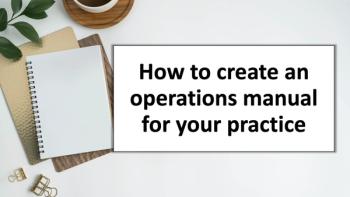
Healthcare In the Eye of a Storm
When Hurricane Katrina forced the nearby hospital to shut down, patients started flooding this little family practice in Hattiesburg, Miss. Here's how the heroic staff coped.
Most Americans followed the devastation and suffering wrought by Hurricane Katrina glued to their TV screens, and some healthcare providers traveled to hard-hit areas to help out. But a small family practice in Hattiesburg, Miss., found itself on the front lines as streams of storm victims flocked to its offices from New Orleans and elsewhere when the biggest hospital in town was forced to shut down.
The Family Practice/After Hours Clinic, which is 90 miles from New Orleans, operated 11-hour days for nearly a week despite the fact that many of its staff and some of its five physicians had no electricity at their own homes. Some even camped out at the office overnight and made use of a shower one of the doctors rigged up in a closet.
Patients came with broken bones, burns from power lines, cuts from chainsaws, skin infections, panic attacks. Pregnant women came, diabetics, hypertensives, post-op patients, and people who were seeking pain medication.
Some told harrowing tales of surviving the onslaught of the storm and the treacherous journey to the doctors' front door, in an area of the state known as the Pine Belt. One woman recalled being in a New Orleans hospital when a wave hit. A 79-year-old man made it to the clinic after his shrimp boat, stuck in the water against a restaurant sign for 10 hours, freed itself and dropped him on dry land.
Many patients had no money, no identification, and no medical records. The clinic was so busy - especially on August 31, two days after the storm hit - that some patients were simply seen, not charged, and no charts were made. "Our instructions were to not turn away anyone," recalls Debbie Adamson, the clinic administrator.
The practice gave away all its snacks, drinks, and emptied its stock of medicines from the in-office pharmacy, with one staff member assigned to sit at a table and count out pills (no pharmacies were operating). Staff took gasoline from their small generator and gave it to a man who waited six hours in their office for an oxygen delivery because he did not have enough gas to drive home.
"It was a zoo," Wayne Hughes, MD, one of the physicians, says with characteristic understatement.
The Category 4 storm tore through Hattiesburg on Monday, August 29, downing thousands of trees and knocking out power and water to the clinic, which typically operates seven days a week with extended evening hours. Four of the five physicians are Mississippi natives.
At the end of the previous week, the staff had been monitoring the storm and had taken pains on Sunday to phone regularly scheduled patients to cancel their Monday appointments. One of the physicians took home the servers housing the practice's electronic medical records system. They split up their lab chemicals that had to be refrigerated and the physicians who had generators brought them home as they all prepared to wait out Katrina.
By Tuesday morning the storm had passed, and without ever communicating with each other - landlines were down and cell phones weren't working, either - all five doctors showed up at the clinic at 7:30 a.m. to find their building intact.
They agreed that if power was returned the next day, Hughes would see patients. Hughes didn't know which other workers might come in to help him Wednesday morning, because the practice had no way of reaching anyone. But he wasn't worried about an onslaught of patients. "I thought nobody would show up," says Hughes.
He was wrong: more than 200 did. What no one at the clinic knew was that just down the street, an emergency generator had failed at 400-bed Forrest General Hospital, and officials there were sending patients to the clinic. Apparently word had gotten out that it was open for business. Wesley Medical Center, the town's other hospital, was able to keep operating, but it, too, sent overflow ER patients to the clinic, as did a Red Cross shelter and some church groups that were also aiding hurricane survivors.
Two administrative personnel made it in Wednesday morning, as did just one nurse - Merle Sharp, who "on a good day" lives 30 to 40 minutes away from the office. She came in despite being without power at home; three weeks after the storm had passed she still had no electricity.
As Hughes and Sharp worked side-by-side, working through the sea of patients, Sharp had to do a bit of improvisation of her own. She had forgotten her reading glasses and spent the day wearing an old pair that she retrieved out of the practice's lost and found collection - even though they were not her prescription. "She was carrying a huge load that day," Adamson says.
"I came in late Wednesday to check on Dr. Hughes and he said, 'This is bad'," recalls Terry Lowe, another of the practice's physicians. Lowe decided to come back in the next day and work, as did physicians Michael May and Stephen Lambert. It was Lowe's family that camped out at the clinic for 12 nights (he made the shower, too).
As the rest of the week wore on, other staff and physicians came in as they were able to travel through Hattiesburg. Slowly the clinic got back to normal, but a few staff members who lived in trailers remained unable to return home after nearly a month.
Hughes wants to have a meeting with the other healthcare providers in town to review how events unfolded and discuss ways to do things differently - if there is ever a next time.
Theresa Defino, editor for Physicians Practice, can be reached at
This article originally appeared in the November/December 2005 issue of Physicians Practice.
Newsletter
Optimize your practice with the Physicians Practice newsletter, offering management pearls, leadership tips, and business strategies tailored for practice administrators and physicians of any specialty.






